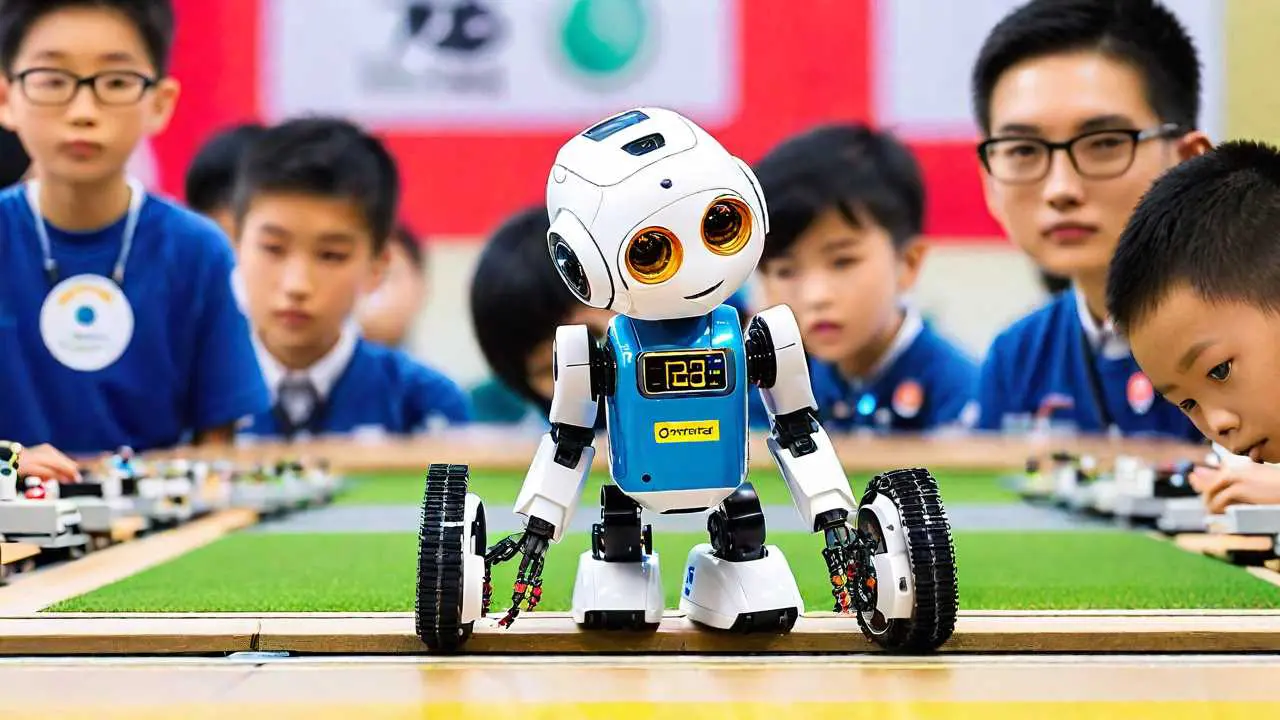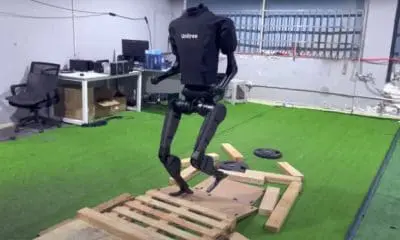Technology
Hong Kong Students Break World Record with Tiny Humanoid Robot

Record-Breaking Achievement
Students from Hong Kong have earned a spot in the Guinness World Records by creating the world's smallest humanoid robot. This remarkable achievement was accomplished in a school robotics laboratory, where the team crafted a bot capable of complex bipedal movement. To claim the title, the robot had to do more than shrink in size—it had to articulate joints like knees and elbows, and move on two legs.
Team of Young Innovators
The four-member team, consisting of Aaron Ho Yat Fung, Isaac Zachary To, Justin Wang Tou Duong, and Ngo Hei Leung, successfully surpassed the previous record held by Pakistan’s Zain Ahmad Qureshi. Their humanoid robot, which is yet to be named, stands "shorter than a standard ballpoint pen," setting a new benchmark in the field of robotics.
Specifications of the Miniature Marvel
Guinness World Records has confirmed that the new record-holder measures a mere 141 mm in height, beating the former record holder by 11.3 mm. The team envisions their creation as a "small, low cost, rechargeable, and programmable" tool for STEAM education, potentially allowing for mass production and reduced costs.
From Design to Dance
The robot was initially designed using CAD software, followed by the production of acrylic panels and 3D-printed components within the school's lab. The students then collaborated with a servo motors manufacturer to assemble their robot, which is controlled by a 16-channel board and can be operated by onboard buttons or a mobile device. Impressively, the robot can perform a variety of actions, including dancing, kung fu, and even kicking a football, all powered by a 7.4V lithium-ion battery.
Open Source for Broader Impact
The Diocesan Boys’ School robotics team is not stopping at breaking records. They plan to make their robot's design and code open source, aiming to support STEAM education workshops and make them more engaging and affordable. This initiative could spark a significant impact on educational methods and inspire future generations of innovators.

Hello! I’m Roger Jenkins, your go-to source at ReportingTheNews.com. I’m a USC graduate who combines journalistic precision with a Trojan’s passion. Based in sunny Los Angeles, my days are filled with more than just sunshine; they’re about capturing stories that resonate.
Beyond the newsroom, I’m an avid triathlete. Swimming, cycling, and running are more than just sports to me; they embody my commitment to discipline, focus, and a healthy dose of competition.
My love for travel takes me far and wide. Guadalajara, with its vibrant culture and unforgettable tacos, has a special place in my heart. I’m always searching for the next great story or a hidden culinary treasure.
At home, Nala, my energetic pet, is my constant companion. Together, we’re known in our neighborhood for our morning runs and evening strolls.
I’m driven by a belief in the power of storytelling to unite communities. Join me as we explore impactful narratives and stay updated with the latest news. You’ll also get a peek into my sports passions and travel escapades.
Want to get in touch? Follow me on Instagram for more insights and updates.



